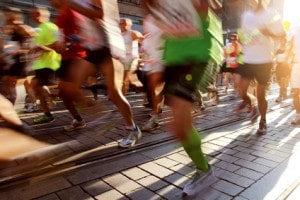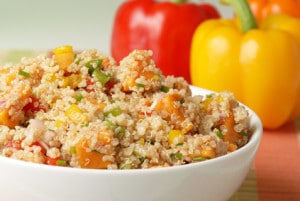
LONGER EVENTS (olympic, half-iron, ironman)
If the event or practice is over 1.5 hours long what can I eat?
Carbohydrate loading can be used for triathletes, who typically participate in events that last longer than 90 minutes. If you decide to maximize your energy stores through carbohydrates. Maximizing carbohydrate intake can begin as early as seven days or as little as 24 hours before the event. Triathletes should aim to consume between 3.5-5.5 grams of carbohydrates per pound of body weight. This amount provides sufficient energy to prevent glycogen depletion.
Here is a good article on carbohydrate loading: http://www.runnersworld.com/nutrition-runners/fill-er
Longer events (over 1.5 hours) may also warrant getting some quick fuel in during the events in the form of gels, crackers, or gatorade- just some simple glucose to keep your blood sugars up during the longer time you are exerting energy.
SHORTER EVENTS
If the event or practice is under 1.5 hours long what can I eat?
If your event or training is shorter than an hour and a half then carbohydrate loading is not necessary. To make sure your muscles and liver have a good amount of carbohydrate for energy- eating a good breakfast with carbs or a dinner the night before with carbohydrates may work to your benefit. Your breakfast or lunch can also work to fuel your afternoon workout. Experimenting with what you eat and the times you eat – will be the best barometer to optimal eating for your individualized performance.
FOOD TIMING

If you have more time before a race or practice- you can also experiment with complex carbohydrates which have more fiber in them as there is more time to digest most of this food (especially if you have 4 hours before an event). These carbs take longer to digest but are great for keeping blood sugars at an even level-longer and help with a sustained energy supply. Try oatmeal , whole wheat breads, brown rice, quinoa, whole wheat cous-cous. bars, Apples, oranges, pears, berries, cataloupe, bananas- salads, greens, and vegetable. All of these foods provide optimal carbohydrate fuel- but need a bit longer to digest.
NOTE: High fat or fried foods take longest to digest so avoid fatty foods before an event.
Can I eat 2 hours before an event or practice? What should I eat? Yes. Practice with eating easily digestible foods 2-4 hours before an event. These include complex carbs in the form of starches which are easily absorbed and broken down quickly into glucose because they do not contain a lot of fiber and protein. Examples are white pasta, bagels, white bread, white crackers, white rice, ripe bananas. They are digested in your mouth and stomach and then absorbed easily through the small intestine to provide faster glucose for your performance.
Can I eat less than 2 hours before an event? What should I eat? Yes, but you need to make sure the foods you eat work for you. Practice with carbohydrates which are easily digested and absorbed. See the examples mentioned above: white pasta, bagels, white bread/crackers, white rice, cous-cous, ripe bananas- even apple sauce.
SUMMARY

No matter what: It is important to try out different foods during training to determine appropriate amounts and which types of carbohydrates work best. Practicing when you eat is just as important.
Overall: Enjoy Complex Carbs like those easily digested ones: potatoes, rice, pasta and bread.
If you have more time to digest foods before an event- like 4 hours- experiment with complex carbohydrates containing fiber such as whole grains,oatmeal, fruits and veggies.
Simple carbs or foods containing glucose/ fructose like juices and gels can be beneficial during long races when you need quick glucose replenishment.
QUESTIONS?
If you have questions about carbohydrates and triathlon training, please feel free to contact Emma for your Expert Nutritional Personal, Professional, Team Building or Corporate needs. Contact Emma Fogt here.
